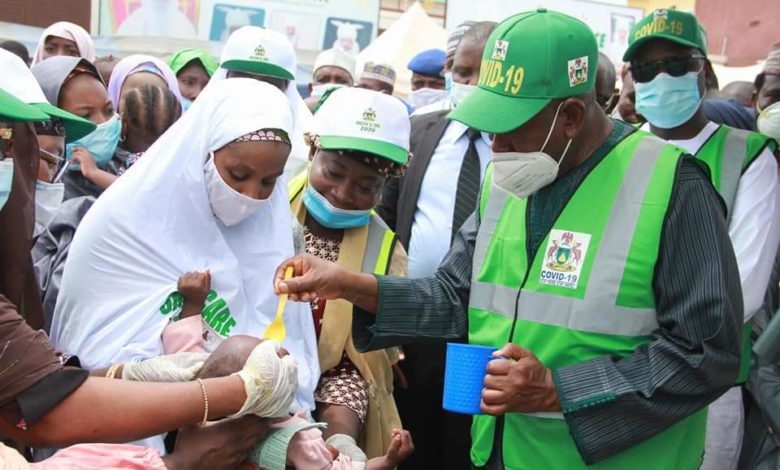Kano Govt, Malaria Consortium To Fight Malaria With 3 Billion Naira

To increase its fight against Malaria, the Kano state government in partnership with Malaria Consortium will spend over three billion nara on projects.
The state governor, Dr. Abdullahi Umar Ganduje made this known when he Inaugurated ‘Malaria Chemoprevention’ along with Maternal Newborn and Child Health Week, for the 44 local government areas of the state on Sunday, in Bichi Local Area.
HumAngle reports that it is part of the state’s attempt to avoid sole concentration on COVID-19 pandemic at the expense of all other illnesses and drive effective response.
Governor Ganduje said that event was necessary for the continued support and development for the health sector.
“It is glaring that global attention is turned to COVID-19 pandemic. We are witnessing the same situation across the country. This, we think should be revisited.
“That is why we are coming up with this and similar programs. We need to also give our attention to other illnesses.
“This program is aimed at saving our pregnant women and children. Pregnant women should bring themselves for this opportunity and bring forth their children.
“People should cooperate with the government to improve the healthcare system,” Gov. Ganduje said.
Freedom Radio, Kano reported that also speaking, the state Commissioner of Health, Dr. Aminu Ibrahim Tsanyawa revealed that there are an estimated 219 million cases of Malaria worldwide.
Most of these cases were in the African region, with an estimated 200 million making up to 92 per cent of global cases.
He said, “In 2017 five countries accounting for nearly half of all Malaria cases worldwide were in Africa. And Nigeria alone is contributing 25 per cent of the global burden.
“With most childhood malarial disease and deaths occurring in the Sahel sub-region.
“The Maternal Newborn and Children Health (MNCH) Week will be conducted in all the 44 LGAs in Kano state in four cycles of four days per month, from July to October 2020.
“The exercise entails the administration of Sulfadoxine-pyrimethamine plus Amodiaquine (SPAQ) to children of 3 to 59 months. And therefore targeted 2,835,462 children in the state,” Tsanyawa said.
Support Our Journalism
There are millions of ordinary people affected by conflict in Africa whose stories are missing in the mainstream media. HumAngle is determined to tell those challenging and under-reported stories, hoping that the people impacted by these conflicts will find the safety and security they deserve.
To ensure that we continue to provide public service coverage, we have a small favour to ask you. We want you to be part of our journalistic endeavour by contributing a token to us.
Your donation will further promote a robust, free, and independent media.
Donate HereStay Closer To The Stories That Matter




